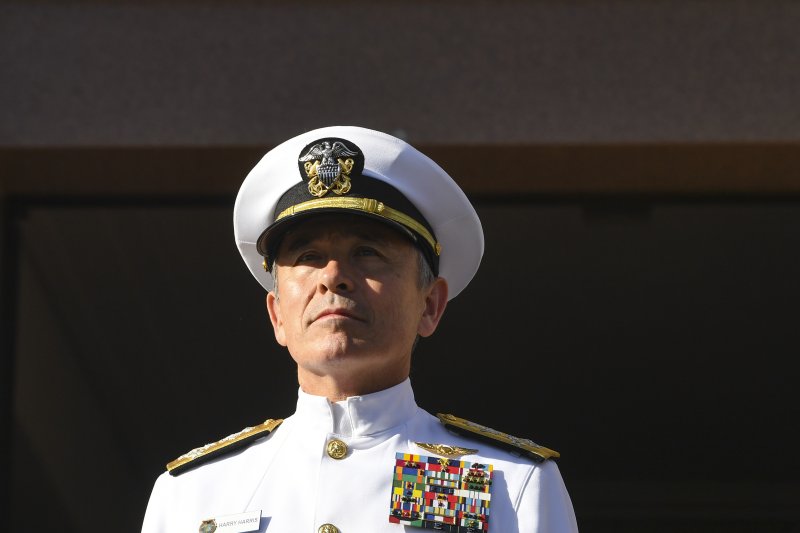U.S. Pacific Commander Admiral Harry Harris attends a last post ceremony at the Australian War Memorial in Canberra, Australia, on March 7. Admiral Harry Harris has been chosen by President Donald Trump as the US Ambassador to Australia. Photo by EPA-EFE/Lukas Coch.
April 25 (UPI) -- The Trump administration plans to nominate U.S. Pacific Command chief Harry Harris to fill the long-vacant seat of U.S. ambassador to South Korea, U.S. and Australian officials said.
According to The Washington Post, the Trump administration is planning to re-nominate Admiral Harris, as the top U.S. envoy to Seoul, although he has already been nominated as the U.S. Ambassador to Australia in February.
This came after CIA Director Mike Pompeo promised to quickly fill the position in Seoul, which has been vacant for 16 months, after former Ambassador Mark Lippert finished his term in early 2017.
Pompeo reportedly requested President Donald Trump to reassign the admiral, who is said to have conveyed to Pompeo he is willing to swap roles.
Officials are said to be waiting for the green light from the White House.
Australian Foreign Minister Julie Bishop confirmed Wednesday that she was notified of the changes.
"While we would have welcomed Admiral Harris here as ambassador to Australia, we understand that there are significant challenges for the United States on the Korean peninsula," Bishop told reporters, according to Australia's ABC News.
Harris took over as head of the Pacific Command in 2015. He is the first Asian-American admiral in the U.S. Navy, known for his hard-line stance on North Korea as well as China.
In February, this year, he expressed concern that the North Korean leader is "after unification under a single, communist system,"
He also said in his Senate confirmation hearing in 2014, that the North is the "most dangerous and volatile threat" to Washington.















